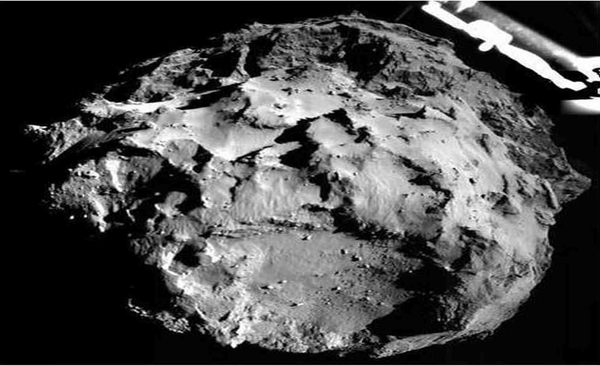Philae, the European Space Agency's (ESA) 100-kilogram robot probe lander that accompanied the Rosetta spacecraft, achieved the first-ever controlled touchdown on a comet at 1605 GMT, Nov. 12.
"We are there. We are sitting on the surface. Philae is talking to us," reported Stephan Ulamec, the Philae lander manager at the DLR German space center.
Philae successfully landed on Comet 67P/Churyumov-Gerasimenko, a rubber-duck-shaped mass of ice and dust that is much older than the solar system, at the 900-meter-long by 600-meter-wide designated target site that has been named Agilkia.
According to initial reports, the robot lander separated from Rosetta at 0835 GMT.
However, the thruster mounted at its top failed to prime correctly. The thruster was meant to push the lander into the comet and prevent it from bouncing away on contact with the surface.
As a result, the lander bounced first before succeeding in making a landing, relying on its three drills, which fortunately all worked, unlike its two harpoons, which both failed.
Ulamec said: "Maybe today we didn't just land once, we landed twice."
ESA's mission control in Darmstadt, Germany, celebrated the historic occasion of the first-ever comet landing which director general Jean-Jacques Dordain described as "a great great day, not only for ESA, but . . . I think for the world."
Andrea Accomazzo, the Rosetta flight operations director, added: "We cannot be happier than we are now."
Philae will be providing the first on-the-ground assessment of 67P using the 10 instruments which make up a third of its mass to study the comet's physical and chemical composition.
If Philae remains stable and secured, it will engage in several months of science experiments on the comet, including various analyses of the surface chemical composition.
Pictures taken by the probe from the surface have already been retrieved on Earth and are being processed in preparation for release, according to BBC News science correspondent Jonathan Amos.


